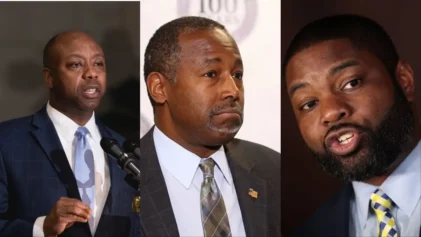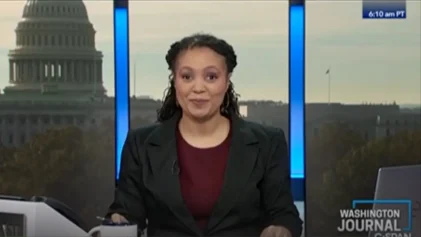Jemele Hill recently spoke about leaving her 12-year position at ESPN and what it felt like there on the last few days.
In September 2017, Hill called Donald Trump a white supremacist on Twitter, which caused a big commotion and got a response from the White House.
But the sports journalist had already started her own production company and had been thinking of leaving ESPN when those tweets were sent, so the controversy or the possibility of being terminated wasn’t all that scary.
“Things already weren’t going right on ‘SportsCenter’ by the time Donald Trump happened,” Hill told VladTV “I was not going to come back to ‘SportsCenter.’ The feeling probably would have been mutual.”
Elsewhere in the sit-down, Hill — who’s now a staff writer for The Atlantic — explained that leaving ESPN just felt right at the time, because there was not much for her to do anymore.
“By the time I approached ESPN about leaving, it just felt like I reached a point that I thought I’d get to three years from then — which was there was not much left for me to do,” she explained. “And I’m self-aware. Like, I know there’s a narrative that they’re trying to escape under, being too political, too liberal, so it just seemed like this was an advantageous time for both of us, to just be realistic.”
Hill then said when her last days at ESPN were upon her, she started to feel a sense of relief, due to all of the scrutiny she’s been under since the Trump tweets.
The Detroit native was also very aware that she’d become a problem for ESPN because of the controversy. Plus, she was suspended by the network for telling people to boycott advertisers who work with Dallas Cowboys owner owner Jerry Jones, for his stance on not allowing players to protest during performances of the national anthem.
“I did feel a lot lighter,” said Hill. “That was probably the sensation more than anything. Not because I felt like I had been punished there or had grueling experiences, but mostly because a lot of what had happened last year, it felt like it had been lifted. And I’m sure they would probably say the same thing, me not being there created less of a headache for them. I just felt like it was time to move on.”
You can see Hill’s interview below.



